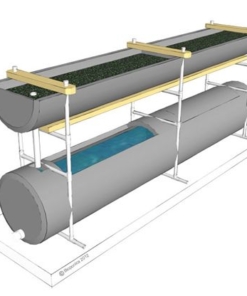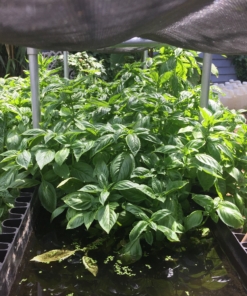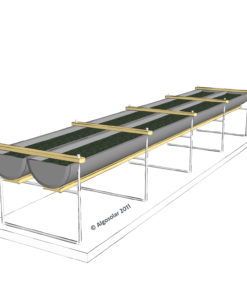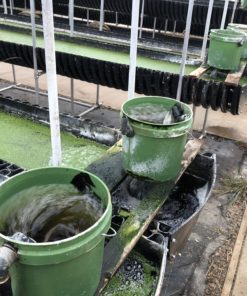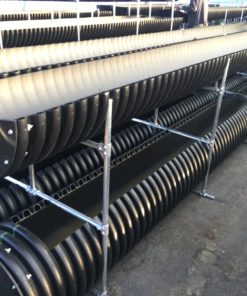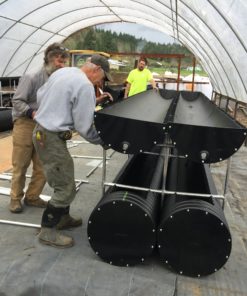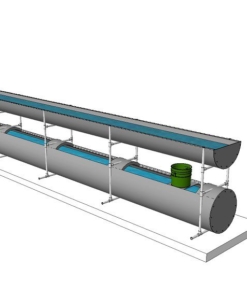Biogarden Worm Farm™
Worm Farming in the Biogarden plus Microbe Tea Brewing
Earthworms are a valuable asset to any farm project. Worms provide microbes that may be brewed into a tea and their castings are tops for soil growing. This table produces 500lbs of earthworms in a year and consumes on average 50lbs of biomass per week. The Biogarden allows us to flood the bed on a timer and allows the leachate to drain into the tank below. This is then maintained with a vortex and pump that circulates the microbe tea from one end to the other. We feed organic liquid biomass fertilizers to the tank instead of sugars as they are what we use for growing plants and they're a more stable and complex source of microbe nourishment. Teas are added to each of the tables and mixed into our organic fertilizer fertigation systems.
- Earth worms are very profitable. Revenue from earth worms alone from 100 square foot area is approximately $10K per year.
- Worm casting teas are continuously produced in the Biogarden worm farm. Casting teas provide plant-beneficial bacteria and rhizobacteria for the soil, grow media and plant roots. The tank below, which receives drippings from the worm far above, is continuously brewing worm teas as a biodynamic soil conditioner.
- Vortex water aeration - is included with each Worm Farm tank. The Vortex Aerator™ mixes and oxygenates the castings and is ideal for increasing colonization prior to applying to soil or media.
- Organic chicken and fish feed: Earth worm farming provides organic nourishment supplement to regular diet.
- Highly productive: The Worm Farm 20' dual bed Biogarden will provide 500 lbs of earth worms per 60 sq ft area each year.
- The Biogarden worm farm provides a vermicompost, a valuable soil amendment that can be used on the farm or sold to farmers and gardeners.
- Supports wedge or top fill techniques which minimize labor and need to aerate."
- No nutrient loss as all drippings are collected and returned to the fertilizer making process
- Converting waste discards into earth worms and castings is beneficial for the environment. It removes waste, sequesters carbon and provides a nutrient source to for growing organic plants.

